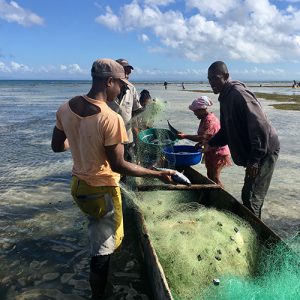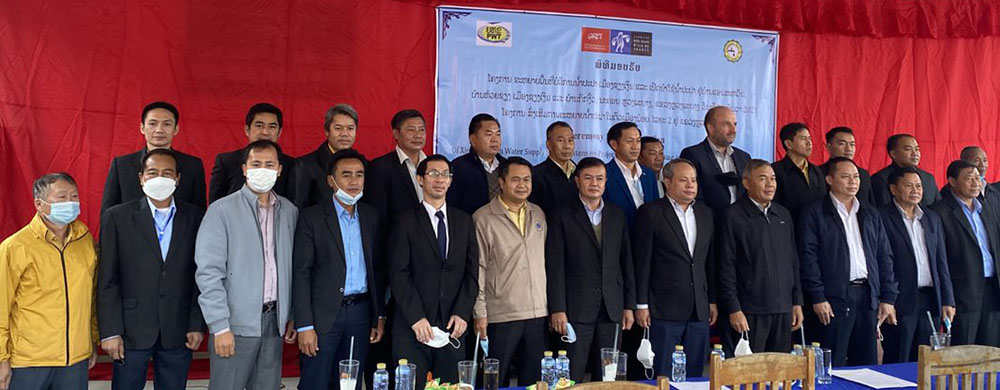As part of a programme agreement drawn up in mid-2019 with Agence française de développement (AFD), GRET began to envisage taking a “commons-based approach” in twelve projects focusing on territorial management, essential services and natural resources in West and central Africa, Madagascar, Haiti and South-East Asia.
The political and economic dimensions of the commons
The agreement, entitled “Commons and shared governance for resources, territories and services”, was a result of reflection launched by AFD in 2016, with a view to including the notion of the commons in development policies. GRET’s position is that a “commons-based approach” is pertinent to provide better responses to the issues of social justice and ecological transition.
The commons is an age-old notion that was updated by political scientist Elinor Ostrom, who won the 2009 Bank of Sweden Nobel Memorial Prize in economic sciences (the “Nobel” prize in economics). In reaction to the neoliberal wave of the 1980s, the work produced by Ostrom’s research team demonstrated that local populations are capable of sustainably managing shared-access natural resources without calling on the State, the private sector, or private or public property. This work triggered a multitude of academic debates and informed numerous citizen experiences by commoners aiming to construct alternative, fairer and more sustainable societal models.
A common commodity is made up of a resource and a set of stakeholders with rights to this resource: as a social construct, it becomes a common when stakeholders get involved in collective action to define a shared governance system enabling it to be managed sustainably. Each common is therefore located in the immediate vicinity and takes on a specific form with its purpose, its stakeholders and its governance rules. Initially theorised based on natural resources, the notion became broader as it was appropriated by commoners: a common can be material (a natural resource but also a territory or a space, a service, etc.) or immaterial (shared knowledge, a label, etc.).
By drawing on the capacities of local stakeholders to become organised and define fairer, more sustainable governance systems, the commons-based approach promotes citizen re-appropriation alongside States and the private sector. By strengthening the resilience of populations in the face of future climate and social challenges, this approach enables more effective responses to the dual political and ecological objective underpinning GRET’s mission to work for sustainable development.
Adopting the commons-based approach is not simple and the process has yet to be operationalised as part of development aid. This raises several challenges. The first of these is appropriation of the notion of commons by deciders and operators, who must change their way of reasoning. Another challenge consists of establishing dialogue between “horizontal” commoning dynamics with institutional stakeholders, in what is referred to as an “administered commmons” approach. There is also the challenge of support methods to facilitate processes for construction of commons within project frameworks.
An ambition to operationalise
The programme creates a space for operational experimentation and collective learning to test operationalisation of the approach. Designed over a nine-year period (in three phases of three years), it is intended to last. In nine countries, teams from a dozen projects implemented by GRET have become involved in this collective adventure.
The programme has a dual ambition. The first is operational in nature, with the objective of strengthening the role of citizens and users within shared governance of resources, services or territories, aiming for more sustainable, fairer and more resilient management.
Projects supporting local stakeholders (populations, public authorities, private sector, academic circles, etc.) to construct governance systems focusing on various commons subjects: water services in rural areas in Senegal, rural electrification services in Madagascar, urban territories in Haiti, urban ponds in Laos, a fishing area in Madagascar, a national park in Mauritania, etc. The approach aims to involve local stakeholders more in the definition and issues of the commons, analysis of the context, construction of governance rules, prioritisation of activities, their implementation and their evaluation.
The second ambition is methodological in nature: produce and test tools and methods to include the approach in projects. Some of these are tools for analysis and appropriation of issues, such as keys for understanding the context, exploring all components of the common and inviting project teams and local stakeholders to deepen their understanding of contexts, issues and motivations. Others are tools for facilitation and moderation, especially through role play on negotiations for access to natural resources. The approach taken to construct these methods and tools is comparative, in its geographic scope, the multiplicity of commons subjects and state of progress of projects. Circulation of information on projects will be facilitated between programme leaders and partners via social media, in order to drive the collective dynamic and direct interaction on progress of projects.
To enrich the experimental action-research approach, the programme is also based on partnerships with research: with Cirad’s Green team – through discussions on current research, methodological support and appropriation of tools and methods – and with other research stakeholders, particularly in countries of operation.
Workshops to launch and set up the programme
The first months were devoted to a series of workshops to define, scope and launch collective reflection.
Once the programme’s functional organisation was up and running, the facilitation team held work sessions with researchers and stakeholders involved in the commons, in order to confront institutional readings and refine our strategies for reflection and action.
A series of workshops was organised at the end of 2019 with GRET’s operational teams at headquarters and in three regions of operation (Senegal, Madagascar and Laos) to launch collective reflection and experimentation of the approach in projects. These workshops made it possible to test the role play, discuss political expectations of the approach via video interviews, become familiar with the key principles for success of commons and test keys for understanding. These stages enabled the teams to gain a better grasp of the concepts and value of the approach, to translate it in a concrete manner and to begin identifying pertinent starting points to create the conditions for collective action taking a commons-based approach.
Each team is invited to continue the exercise, to identify, produce, test and exchange tools and with the entire programme.
A second sequence of workshops for regional discussions is planned for mid-2020, with a view to sharing the state of progress of the programme and appropriation of tools and methods, and organising the next stage.




